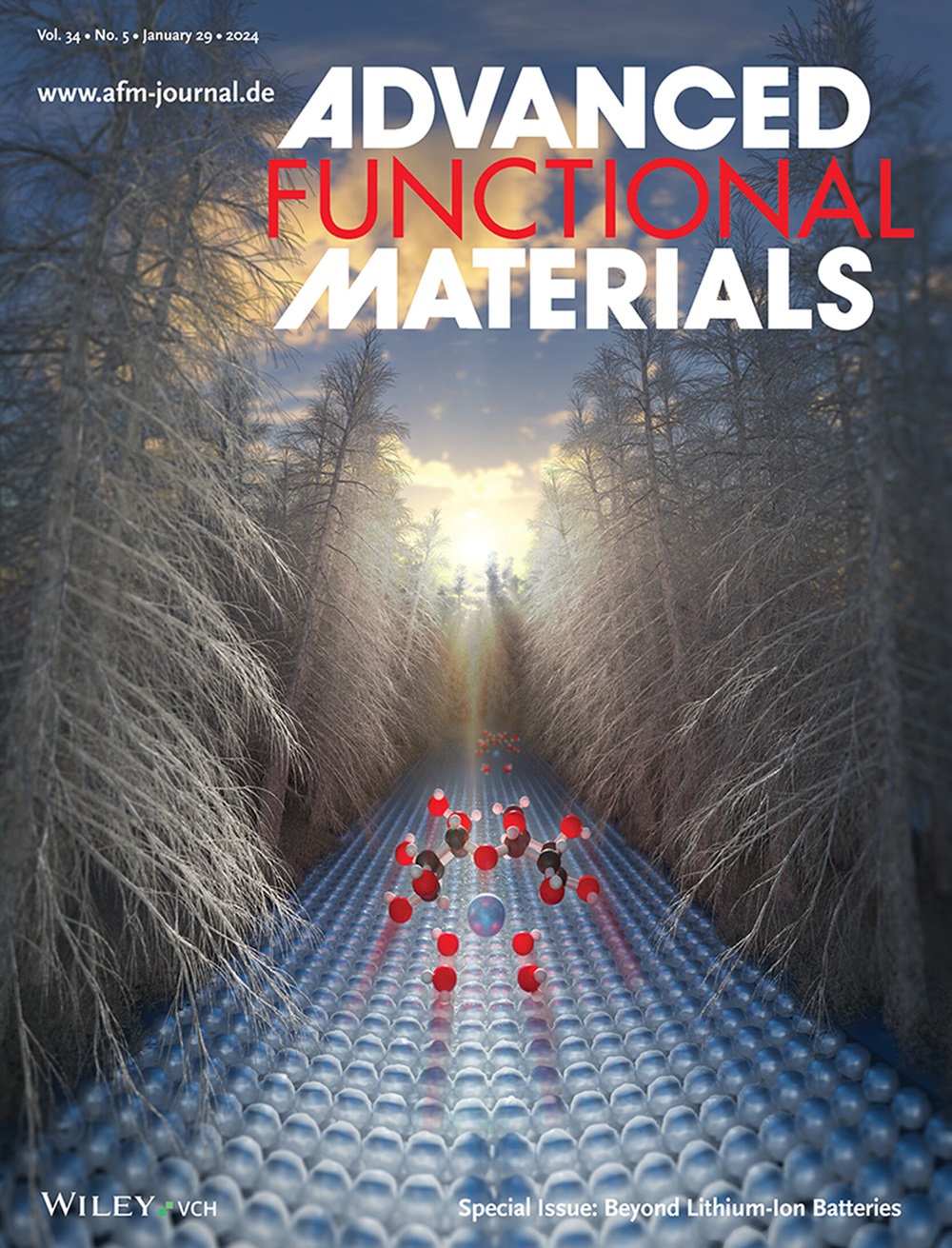Polymer‐Salt Effects with Enhanced Eutectic Behavior in Hydrogel Electrolytes for Aqueous Zinc Batteries at −70 °C
IF 18.5
1区 材料科学
Q1 CHEMISTRY, MULTIDISCIPLINARY
引用次数: 0
Abstract
Aqueous Zn batteries have attracted substantial attention due to their low cost and inherent safety. However, achieving stable operation under ultra‐low temperature conditions remains a challenge. An antifreeze polyelectrolyte hydrogel is described with ten times break elongation even at −70 °C based on a double cross‐linked network and a polymer‐salt synergistic effect. By incorporating the optimized ratio of lithium chloride (LiCl) and Zn chloride (ZnCl- 70°C时,聚合物-盐对水凝胶电解质共晶行为增强的影响
水锌电池因其低成本和固有的安全性而受到广泛关注。然而,在超低温条件下实现稳定运行仍然是一个挑战。一种基于双交联网络和聚合物盐协同效应的防冻聚电解质水凝胶即使在- 70°C下也具有10倍的断裂伸长率。通过优化氯化锂(LiCl)和氯化锌(ZnCl2)的比例,本研究发现双盐金属离子与聚合物网络中亲水基团(CONH2和SO3−)之间的离子相互作用可以诱导聚合物增强的共晶行为。这种协同效应在同时提高电解质的离子电导率、机械性能和防冻能力方面起着至关重要的作用。该聚电解质水凝胶在聚苯胺Zn || (PANI)电池中表现出优异的性能,即使在- 70°C下也具有118 mAh g - 1/0.2 a g - 1的卓越容量。在0.5 ag−1的更高电流密度下,它在12000次循环后保持近100%的容量,为极端条件提供了强大的储能解决方案。
本文章由计算机程序翻译,如有差异,请以英文原文为准。
求助全文
约1分钟内获得全文
求助全文
来源期刊

Advanced Functional Materials
工程技术-材料科学:综合
CiteScore
29.50
自引率
4.20%
发文量
2086
审稿时长
2.1 months
期刊介绍:
Firmly established as a top-tier materials science journal, Advanced Functional Materials reports breakthrough research in all aspects of materials science, including nanotechnology, chemistry, physics, and biology every week.
Advanced Functional Materials is known for its rapid and fair peer review, quality content, and high impact, making it the first choice of the international materials science community.
 求助内容:
求助内容: 应助结果提醒方式:
应助结果提醒方式:


